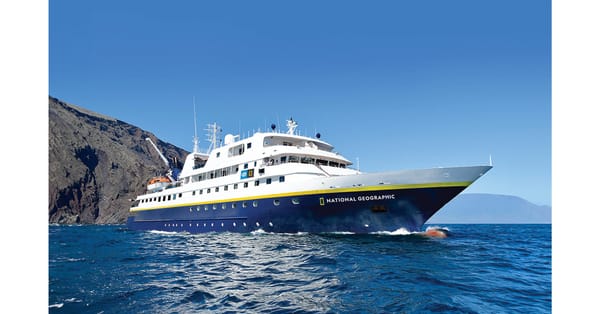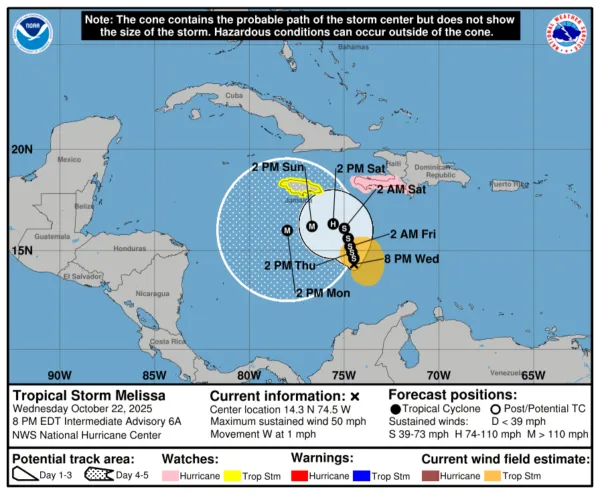Algorithm revolutionizes cruise berth allocation

In recent discussions at Seatrade Cruise Med held in Malaga, a notable topic among port operations experts was the ongoing challenge of berth allocation for cruise ships. The need for improved systems has become increasingly pressing due to the projected growth of the cruise industry, including a significant increase in megaships and passenger volumes at popular ports. Two key figures in this dialogue, Xuereb from Global Ports Holding and Batsoulis from Corfu Port Authority, proposed the implementation of an algorithm-based approach to enhance transparency and fairness in berth allocation.
The cruise industry is expected to grow substantially, with a 24% increase in the global cruise ship fleet anticipated over the next five years, alongside a predicted 33% rise in passenger volumes. This growth brings to light the issue of berth allocation, which has become crucial to manage the increasing competition for port space. Currently, a mere 20% of the available ports are frequented by 80% of cruise passengers, underscoring the urgent need for effective capacity management strategies, particularly at major cruise destinations.
Understanding Berth Allocation
Berth allocation is essentially the process of assigning designated spaces within a port for the docking of cruise ships. Several factors influence how ports manage these allocations, including historical relationships with cruise lines, the dimensions of ships, and operational capabilities of the port. However, the increasing demand for port space and the emergence of larger vessels complicate these allocations significantly.
According to Xuereb, a structured flow of information between cruise lines and ports is essential to ensure efficient berth allocations and minimize cancellations. Furthermore, Batsoulis highlighted the role of mathematical models in creating a more equitable system for berth assignments, allowing for adjustments that reflect changing conditions and client needs.
The Concept of an Algorithm-Based System
Batsoulis's development of an Allocation Algorithm for the Port of Corfu serves as a pioneering example of this approach. This algorithm addresses the emotional tensions often present in berth allocation discussions among stakeholders by providing a more objective method. By compiling ships' data and port restrictions, the algorithm uses a variety of parameters—like cancellation records and ship size—to rank and allocate berths more systematically.
While the traditional allocation method hinged on subjective decisions and long-standing relationships, the algorithm creates a scoring system where ships receive a grade based on specified parameters. Consequently, the vessel with the highest score is granted priority for the best available berths, reducing biases and potentially increasing efficiency.
Challenges of Phantom Bookings
Amid these discussions, another issue that surfaced was the prevalence of phantom bookings—situations where cruise lines reserve spots but later cancel them, often without proper notification to the port. This practice not only leads to lost revenue for ports but also complicates planning for operators who rely on accurate data to manage logistics efficiently.
Both Xuereb and Batsoulis agreed that addressing phantom bookings is critical. Xuereb illustrated this challenge with a case study where lack of communication between a cruise agent and port operators led to confusion regarding itinerary changes. This kind of breakdown can have cascading effects on both operational efficiency and financial stability for the port city.
The Need for Effective Information Management
Efficient berth allocation is closely tied to effective information management. Xuereb urged cruise companies to communicate proactively with ports, especially concerning itinerary changes and last-minute cancellations. By establishing direct lines of communication, ports can receive necessary updates in real-time, which aids in managing allocations smoothly and transparently.
This level of responsiveness not only helps prevent financial losses but also ensures a streamlined experience for cruise lines and their passengers. As competition in the cruise industry grows, maintaining a collaborative environment where accurate information flows quickly will be vital for all involved parties.
Potential for Broader Implementation
After several years of successful application at Corfu, Batsoulis suggests that the algorithm should be expanded to other Mediterranean ports, facilitated by an umbrella organization like MedCruise. This would create a network of ports connected through a central server, allowing itinerary planners to access and share real-time information on berth availability and allocations.
Under such a system, ports would not only see real-time data on their allocations but could also implement measures to manage passenger capacity effectively, ensuring no individual port becomes overwhelmed by simultaneous arrivals.
Conclusion
The conversation around berth allocation at Seatrade Cruise Med highlights the pressing need for innovative solutions in the cruise industry. Both the introduction of algorithmic systems for berth assignments and improved communication channels have the potential to transform how ports handle increasing traffic. As the cruise sector anticipates significant growth, implementing these strategies will be essential for maintaining operational efficiency and ensuring a positive experience for passengers.
FAQs about Berth Allocation
1. What is berth allocation in the cruise industry?
Berth allocation refers to the designated assignment of docking spaces within a port for arriving and departing cruise ships. This process ensures that ships have appropriate spaces to dock safely and efficiently.
2. Why is berth allocation becoming more complex?
The increase in the size of cruise ships and the overall expansion of the cruise industry are leading to greater competition for limited port space, complicating the allocation process due to higher passenger volumes and scheduling conflicts.
3. What are phantom bookings?
Phantom bookings occur when cruise lines reserve docking spaces at ports but subsequently cancel the reservations without timely communication, leading to potential financial losses for the ports involved.
4. How can algorithms improve berth allocation?
Algorithms can create a more transparent and fair system for assigning berths based on numerous variables, including vessel size, cancellation history, and port restrictions, thus minimizing biases and enhancing operational efficiency.
5. What role does effective information management play in berth allocation?
Effective information management enables ports to receive timely updates regarding itinerary changes and cancellations from cruise lines, which is crucial for maintaining accurate berth allocation and mitigating the risks associated with phantom bookings.




